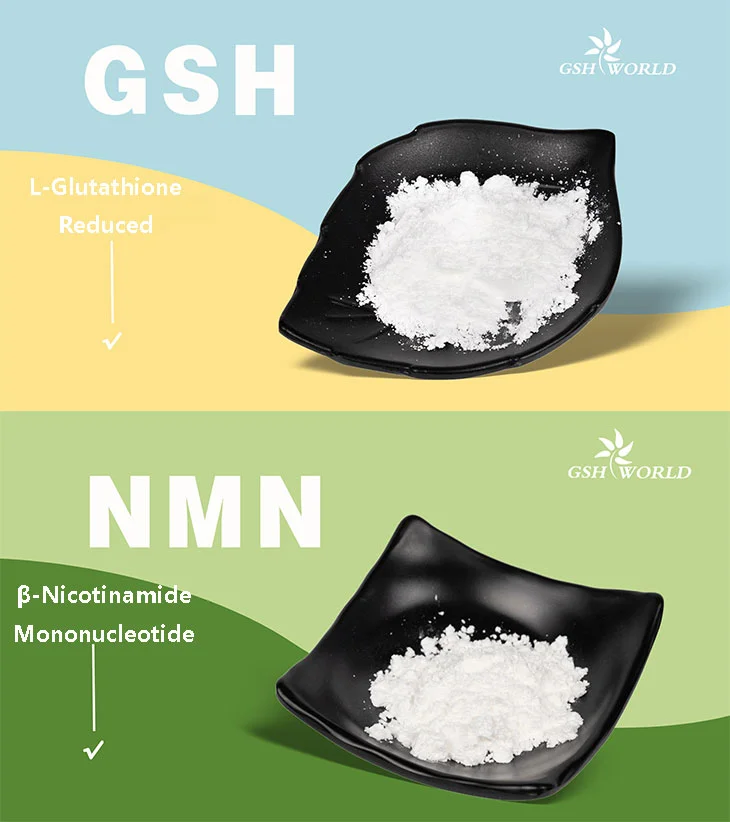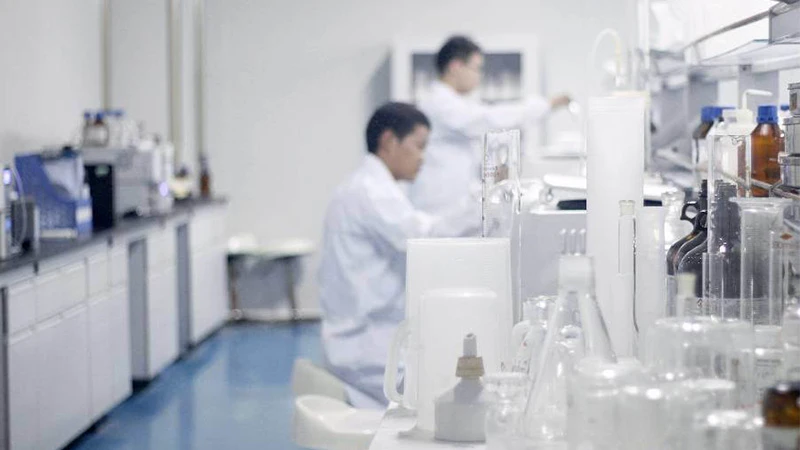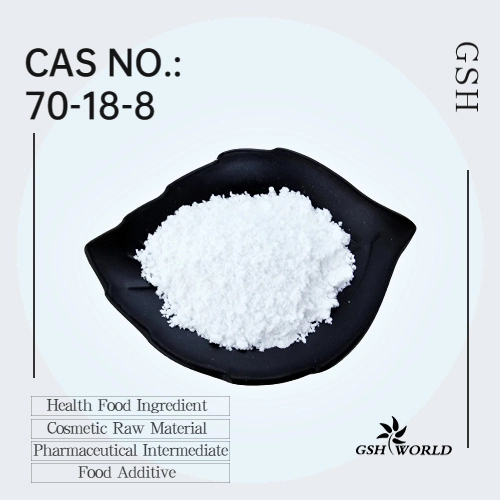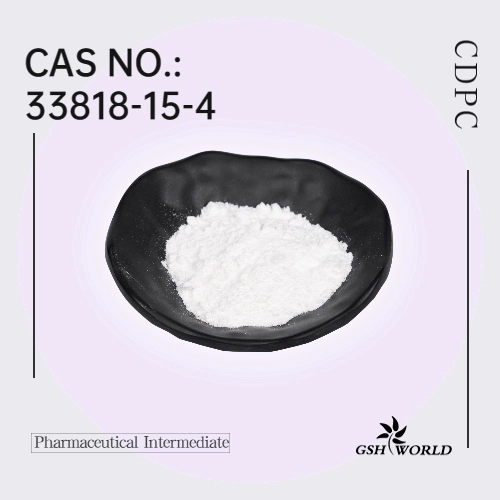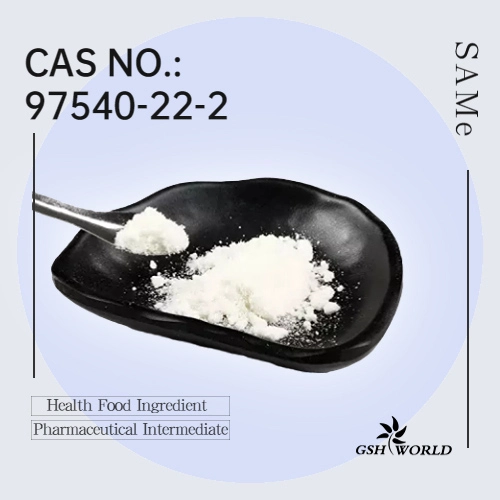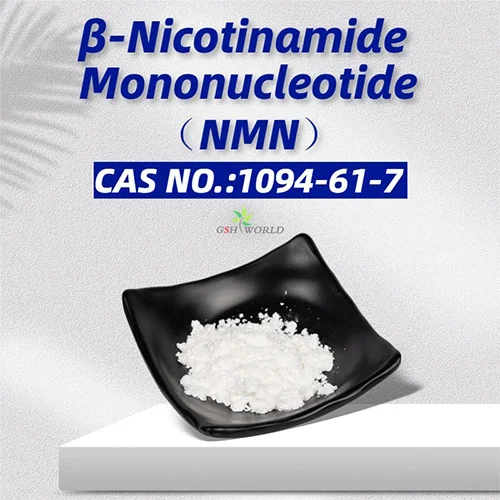Glutathione helps with oxidative stress in diabetes
Oxidative stress is considered an important factor in the onset and progression of diabetes and its associated complications. An oxidative environment induces the development of insulin resistance, β-cell dysfunction, impaired glucose tolerance, and mitochondrial dysfunction, which may ultimately lead to the diabetic disease state. Experimental and clinical data suggest an inverse correlation between insulin sensitivity and reactive oxygen species (ROS) levels.
A study assessing systemic oxidative stress and cellular stress responses in patients with type 2 diabetes and age-matched healthy subjects.
Systemic oxidative stress was assessed by measuring reduced glutathione (GSH) and oxidized glutathione (GSSG) in plasma. Plasma GSH/GSSG was significantly lower in type 2 diabetic patients compared with controls.

Plasma GSH and GSSG levels in type 2 diabetic patients and controls
Glutathione is a tripeptide compound formed by condensation of glutamic acid, cysteine and glycine through peptide bonds under the catalysis of γ-glutamylcysteine synthetase and glutathione synthetase. in all mammalian tissues.
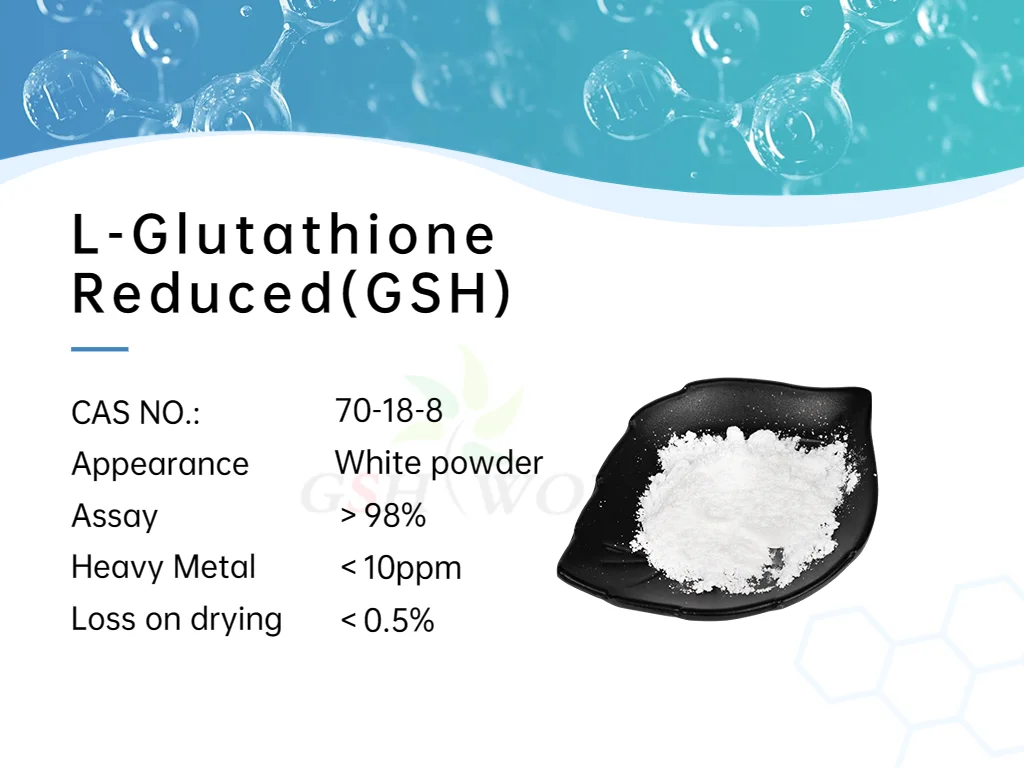
Glutathione is considered a major intracellular antioxidant in humans, with plasma levels ranging from 0.5 to 10 mmol/L.
Glutathione is critical for many internal cellular responses, including cell proliferation, nutrient metabolism, and protection of tissues from harmful pro-inflammatory responses. Although humans can synthesize glutathione themselves, in diabetic patients, increased levels of oxidative stress can severely deplete intracellular glutathione levels.
In diabetic peripheral neuropathy, glutathione, as an important free radical scavenger, can significantly reduce the level of plasma endothelin 1, significantly increase the conduction velocity of peripheral nerves in patients, and glutathione can protect vascular endothelial cells. Effect, so that the microvascular damage in diabetic patients was significantly reduced.
In the treatment of diabetic nephropathy, glutathione can provide active sulfhydryl groups, neutralize oxygen free radicals, prevent active oxygen and oxygen free radicals from producing lipid peroxides, reduce free radical damage to kidney tissue and improve glomerulus and renal tubular functions. It is of great significance to protect renal insufficiency.
In the treatment of diabetic fatty liver, glutathione can provide a reducing agent for peroxidase, thereby inhibiting or reducing the generation of free radicals, resisting lipid peroxidation damage, and protecting liver cell membranes.
Glutathione is an important metabolic substance in human cells. It has a variety of biochemical effects on cells and has a strong affinity. It can combine with various chemical substances and their metabolites to remove superoxide ions and other free radicals in the body. Protects the integrity of cell membranes. At present, glutathione has been used in the treatment of complications such as diabetic peripheral neuropathy, diabetic nephropathy and diabetic fatty liver.
*Special note - This article is for informational purposes only and cannot replace a doctor's treatment diagnosis and advice. It should not be regarded as a recommendation or proof of efficacy of the medical products involved. If it involves disease diagnosis, treatment, and rehabilitation, please be sure to go to a professional medical institution to seek professional advice.
Previous: NMN maintains gut health
Next: NMN significantly attenuates IgE-mediated allergic responses
by GSHWORLD
GSH Bio Tech is China Biological API Manufacturer. China Glutathione Supplements powder suppliers & best Glutathione benefits raw material Factory.


